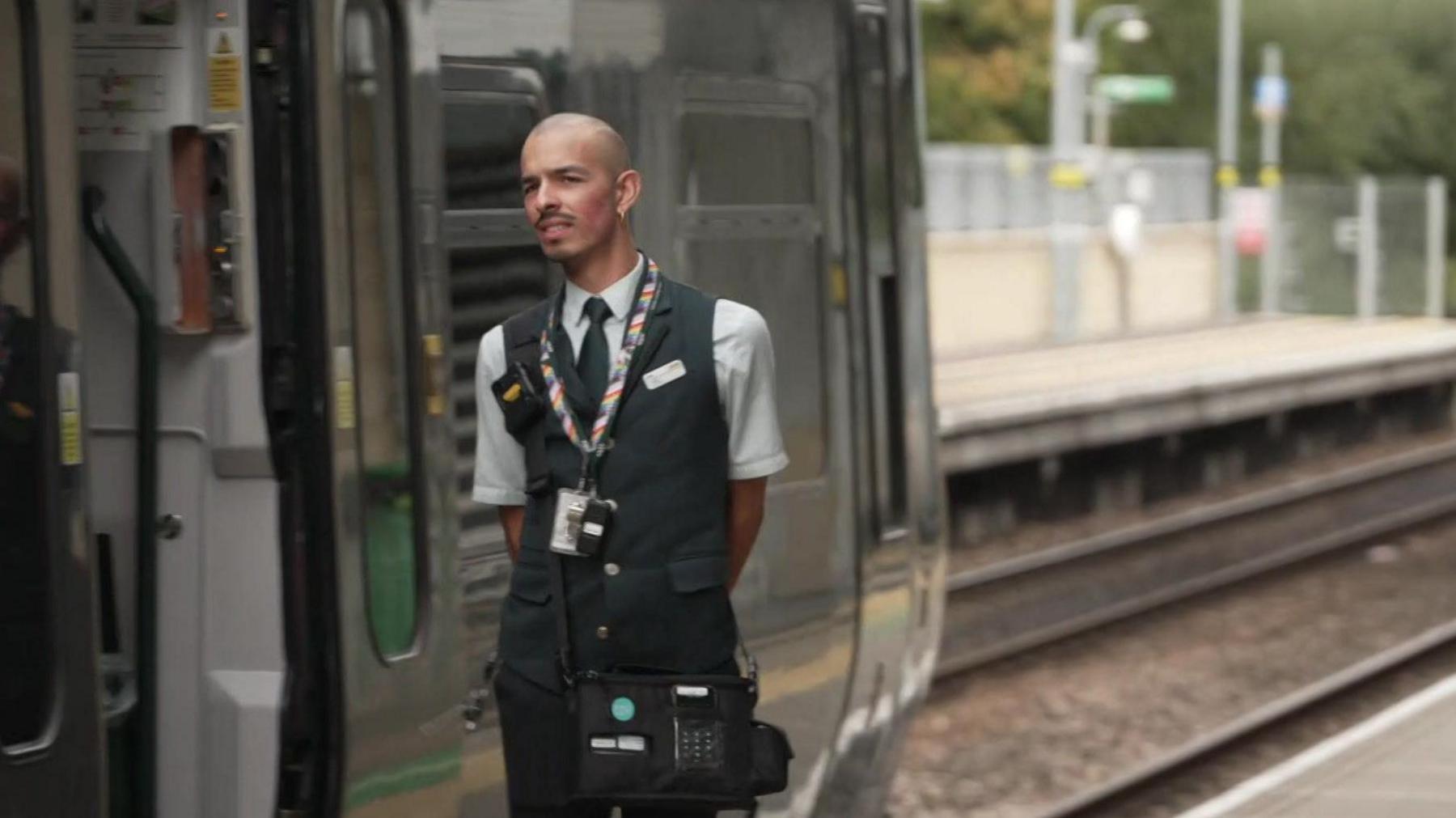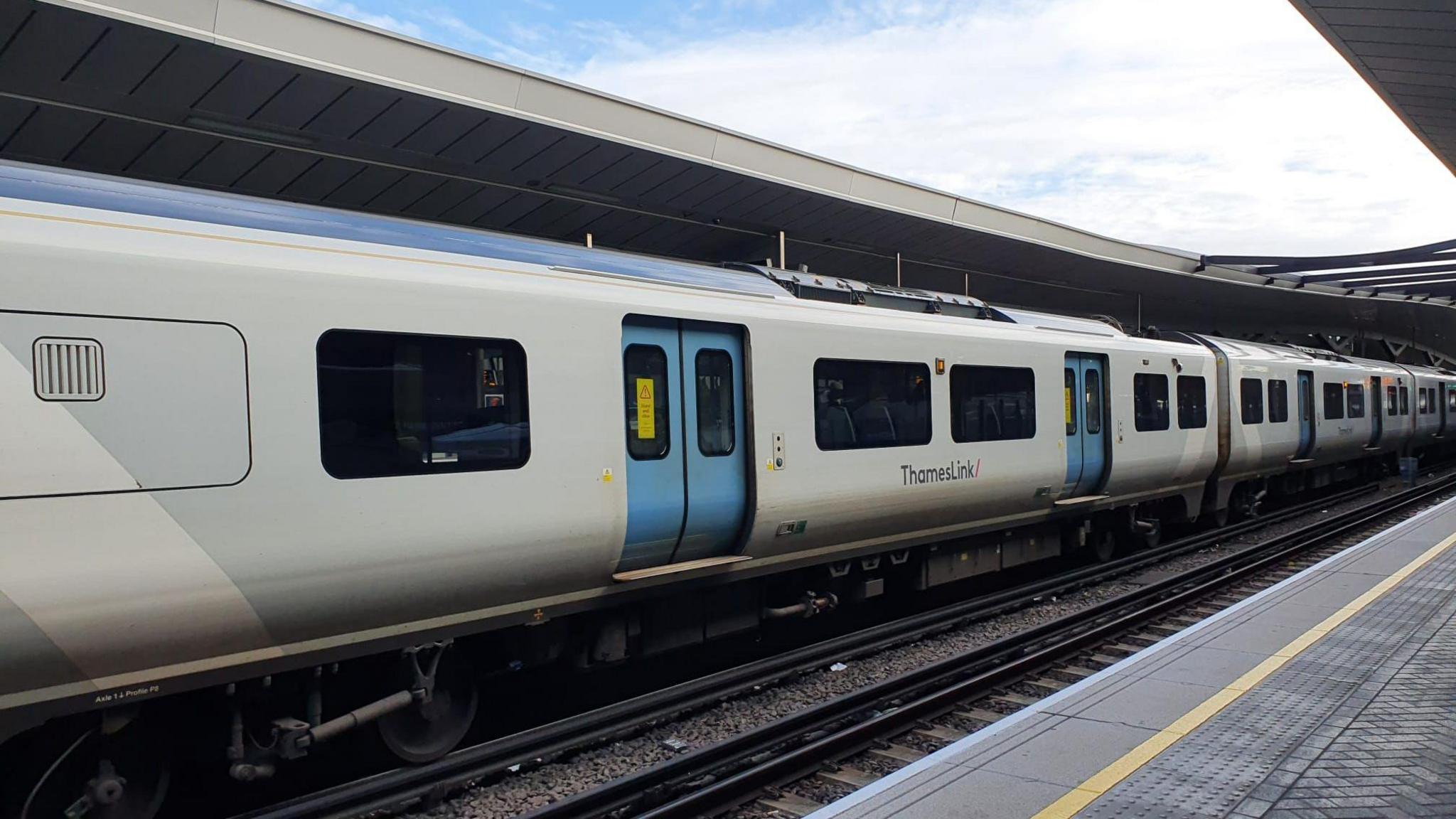Body-worn cameras 'not big fix', rail union warns
Staff say they have faced attacks and abuse from passengers
- Published
Body-worn video cameras used by train company staff are "no replacement for a properly staffed railway", a union has warned.
South Western Railway (SWR) announced last month it was expanding the use of the cameras in a bid to reduce assaults and abuse of staff, while Great Western Railway (GWR) is considering making them compulsory.
The number of reported incidents of violent and public order offences doubled between 2020-21 and 2024-25, according to the British Transport Police (BTP).
RMT Senior Assistant General Secretary John Leach said passengers wanted "trained railway people, not enforcers who turn up with body cameras".

GWR is considering making the cameras compulsory for staff
About 3,500 GWR staff have had the option to wear them in last three years, but less than a third are wearing them regularly.
GWR spokesman Dan Panes said: "It's quite clear from the research we've got at the moment that we could save around 50% of those staff assaults, whether that's physical or verbal, in the last year, and that's around 190 assaults we could stop happening.
"So it's a pretty obvious thing to want to introduce."
SWR said it was expanding its use of cameras after more than two assaults had been recorded everyday in 2025, including "violent attacks and verbal threats".
Jane Lupson, safety and security director, said last month: "The introduction of body-worn video cameras will help deter anyone thinking of abusing a colleague and help prosecute those who do."

The RMT's John Leach said he was not against the use of body-warn cameras
A study published in 2024 by the University of Cambridge, commissioned by the Rail Delivery Group and BTP, suggested body-worn video cameras could reduce the likelihood of assault against the wearer by 47%.
Mr Leach stressed the union was "not against" the use of body worn cameras.
"It helps, but it doesn't prevent assaults. And it gives an after-the-event record, which is, I suppose, useful to have," he said.
"We're extremely concerned that something that should be useful and in the toolbox in the world of work is going to be used as the big fix, which it's not.
"You need human beings. They are no replacement for a properly staffed railway."
Get in touch
Do you have a story BBC Hampshire & Isle of Wight should cover?
You can follow BBC Hampshire & Isle of Wight on Facebook, external, X (Twitter), external, or Instagram, external.
Related topics
- Published16 September

- Published28 June 2024
